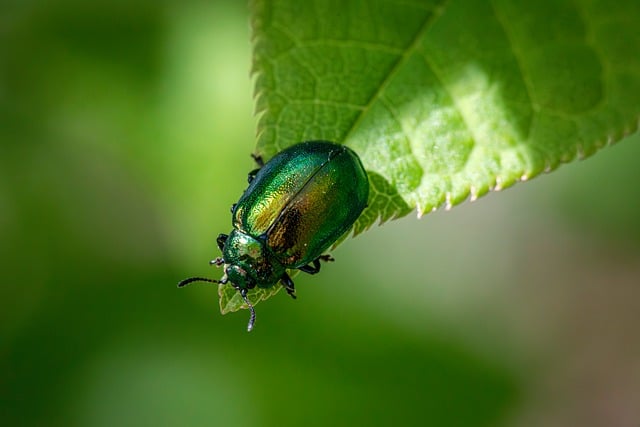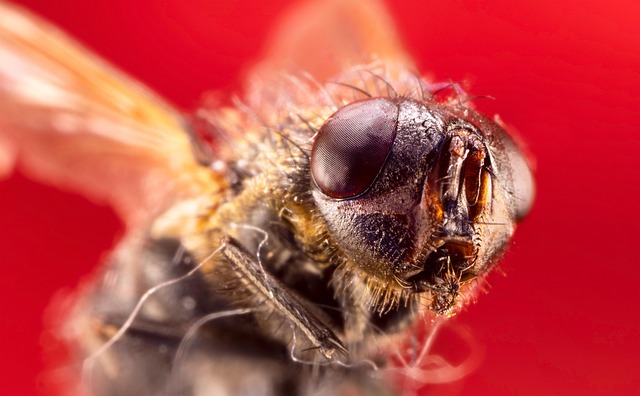In Castle Rock, sustainable pest management for vegetable gardens focuses on understanding and mitigating termite damage, which impacts soil health and plant growth. Organic and eco-friendly solutions, like beneficial insects, companion planting, and organic fertilizers, are preferred over synthetic chemicals to protect local ecosystems. A step-by-step guide emphasizes identifying termite activity, consulting experts, adopting preventive measures, and selecting safe, effective treatments for balanced crop protection and ecosystem preservation.
In the pursuit of safeguarding your Castle Rock vegetable garden from destructive pests, sustainable termite treatment plans stand as a beacon of effective and eco-conscious protection. This comprehensive guide explores both traditional and organic approaches to mitigate termite damage. We delve into the intricacies of understanding these insects’ behavior, their impact on your garden ecosystem, and sustainable pest management practices tailored for Castle Rock’s unique environment. Get ready to transform your garden into a thriving oasis, free from termite intrusions, using methods that respect the delicate balance of nature.
- Understanding Termite Damage and Sustainable Pest Management Practices
- Organic and Eco-Friendly Solutions for Castle Rock Vegetable Gardens
- Implementing Effective Termite Treatment Plans: A Step-by-Step Guide
Understanding Termite Damage and Sustainable Pest Management Practices

In sustainable pest management for vegetable gardens in Castle Rock, understanding termite damage is a critical first step. Termites are relentless intruders that can cause significant structural and financial damage to homes, especially those with wooden components. They quietly gnaw away at wood, often hidden behind walls or within floors, leading to weakened structures over time. For vegetable gardens, the impact may not be as visible, but the consequences can still be detrimental. Termites disrupt soil health by feeding on organic matter, which can impede plant growth and yield.
Adopting sustainable pest management practices for your Castle Rock vegetable garden involves a proactive approach that minimizes environmental harm while protecting your crops. Instead of relying heavily on chemical pesticides, consider integrated pest management (IPM) strategies. This holistic method integrates biological controls, habitat manipulation, and targeted applications of organic or least-toxic chemicals. By fostering a balanced ecosystem within your garden, you can deter termites naturally and promote the overall well-being of your vegetable plants.
Organic and Eco-Friendly Solutions for Castle Rock Vegetable Gardens

In the quest for sustainable pest management for vegetable gardens in Castle Rock, organic and eco-friendly solutions stand as a beacon of hope for green-thumbed gardeners. These methods prioritize natural, non-toxic substances over synthetic chemicals, fostering a healthier ecosystem within your Castle Rock vegetable garden. By embracing such practices, you contribute to the overall well-being of local wildlife and water sources while still effectively controlling pests.
One effective strategy involves introducing beneficial insects like ladybugs and lacewings, which feed on aphids and other pests. Companion planting, where specific plants are chosen for their natural pest-repelling properties, is another powerful tool. For instance, marigolds and garlic are renowned for deterring nematodes and various insects. Organic fertilizers and compost not only enrich the soil but also help strengthen plants’ natural defenses against pests, creating a more robust and resilient garden ecosystem.
Implementing Effective Termite Treatment Plans: A Step-by-Step Guide

Implementing effective termite treatment plans is crucial for homeowners, especially those with vegetable gardens in areas like Castle Rock. Here’s a step-by-step guide to sustainable pest management:
1. Identify the Scope: Begin by thoroughly inspecting your garden and identifying termite activity or signs of damage. This includes looking for mud tubes, wood damage, or live termites. In Castle Rock, knowing the local species and their habits is essential for targeted treatment.
2. Consult Experts: Engage professional pest control services specializing in sustainable practices. They can provide tailored solutions considering the unique ecosystem of your garden. For instance, they might recommend organic repellents, baits, or cultural controls like proper landscaping to reduce termite attraction.
3. Prevention is Key: Implement preventive measures such as maintaining good drainage to eliminate standing water, which attracts termites. Regularly remove debris and wood piles from the garden, as these can serve as nesting sites. Use resistant building materials for any structures near your vegetable garden.
4. Select Appropriate Treatments: Based on the inspection and expert consultation, choose eco-friendly termite treatments. This could include soil drenches with organic pesticides, termiticides with low environmental impact, or natural barriers like diatomaceous earth or neem oil. For sustainable pest management in Castle Rock’s vegetable gardens, it’s about finding a balance between protecting your crops and preserving the local ecosystem.
When it comes to sustainable pest management for vegetable gardens in Castle Rock, implementing effective termite treatment plans is a crucial step. By understanding termite damage and adopting eco-friendly solutions alongside organic practices, you can protect your garden while preserving the local ecosystem. Following our step-by-step guide ensures a comprehensive approach to managing termites, allowing you to enjoy a thriving vegetable garden without compromising on sustainability.
